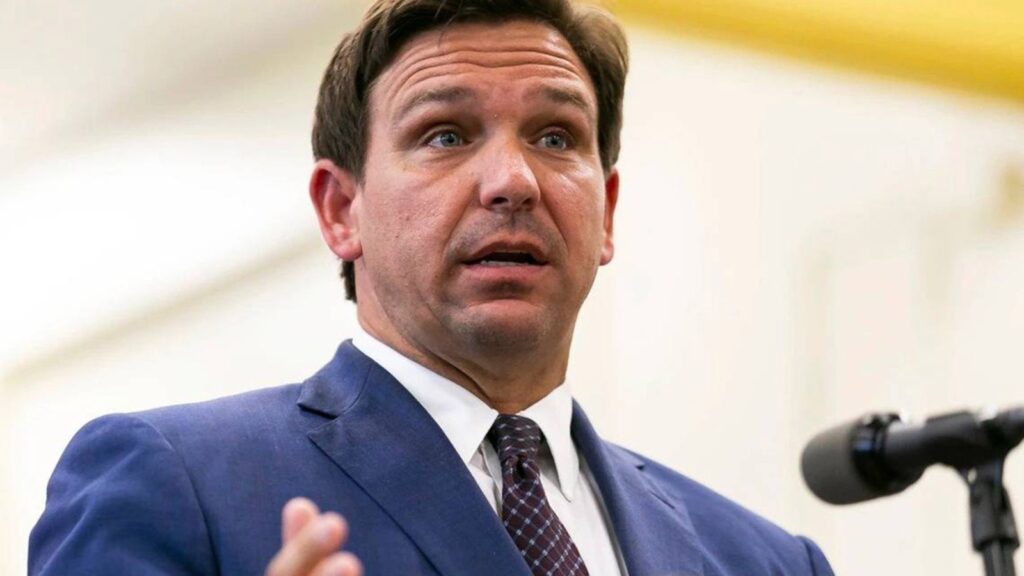
College Board Kicks Off Black History Month by Caving To Ron DeSantis
The College Board has stripped down its proposed Advanced Placement African American Studies curriculum to remove topics that Governor Ron DeSantis and the Florida Department of Education accused of violating the state’s “Stop Woke” law. Florida blocked testing of the program in the state’s schools earlier this month on grounds that it was “inexplicably contrary to Florida law and significantly lacks educational value.”
In a statement to reporter Mark Caputo on Jan. 20, the Florida DOE identified six topics in the pilot curriculum that ran afoul of the state’s increasingly restrictive policies on discussions of race and diversity in education. The topics included “Intersectionality and Activism,” the “Movements for Black Lives,” “Black Feminist Literary Thought,” “The Reparation Movement,” “Black Queer Studies,” and “Black Study and Black Struggle in the 21st Century.”
According to a review of the revised curriculum by The New York Times, the College Board has eliminated or intensely culled many of the topics flagged by the Florida government. Readings and course units containing materials from Black authors associated with concepts such as Black feminism, critical race theory, and Black queer theory have been stricken. Materials on modern racial topics, including the Black Lives Matter movement, mass incarceration, and reparations have also reportedly been significantly pared down. Works by author Ta-Nehisi Coates, historian Robin D.G. Kelly, and writers Cathy Cohen, Roderick Ferguson, and E. Patrick Johnson are no longer featured in the coursework. The College Board has also included a new proposal for a research project on “Black conservatism.”
The rejection of the proposed course material spoke to the full court press the Florida government is waging against academic freedom, particularly when it comes to instruction on topics of race and diversity.
In 2022, DeSantis signed the “Stop Woke” act into law. The legislation prohibits any curriculum or instruction that suggests a person’s “status as either privileged or oppressed is necessarily determined by his or her race, color, national origin, or sex.” The bill also issues a widespread prohibition on instruction on diversity and inclusion in workplaces in schools, outlawing any “training or instruction that espouses, promotes, advances, inculcates, or compels such individuals to believe specified concepts constitutes discrimination based on race, color, sex, or national origin.”
On Tuesday, DeSantis announced widespread educational reforms to Florida’s higher education. The proposal includes a ban on “supporting campus activities or programs that promote divisive concepts like DEI and CRT.” DeSantis indicated in a statement that all curriculum in higher education should be “rooted in Western tradition,” without elaborating on what exactly that means. Earlier this month the Florida College System (FCS) indicated it would move to evaluate and remove instances of DEI and CRT from its curriculum by February 2024.
Florida teachers are currently being forced to purge their bookshelves of any content deemed too “woke” or inappropriate by the state, on penalty of felony charges. Under Florida House Bill 1467, Florida classrooms and libraries are now required to have each title be reviewed by “a school district employee who holds a valid educational media specialist certificate.” Pen America identified more than 147 titles that were removed from classrooms in Duval County, Florida, for review, which included topics such as LGBTQ families, Harriet Tubman, the war in Afghanistan, Latino heritage, and jazz.
As DeSantis and the Florida DOE wage a war of censorship against the states’ teachers, and curtail students’ ability to learn, the College Board has handed the right a major victory in its mission to reshape education. By caving to the whims of a state government hellbent on eliminating and punishing honest, accurate discussion of the racial history of the United States, it has also betrayed students around the country who look to its resources to advance their academic careers.



